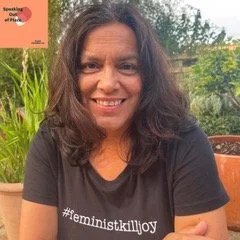What does it mean to have an ecological mind? - Highlights - PAOLA SPINOZZI
/Coordinator, Phd Programme, Environmental Sustainability & Wellbeing · University of Ferrara
Co-editor of Cultures of Sustainability and Wellbeing: Theories, Histories and Policies
The humanities are all about representing the world, while the sciences are all about knowing the world. But I believe the roles are deeply intertwined, and that literature, the humanities, philosophy, history, and the arts are all ways of knowing the world. They do exactly the same thing in our understanding of the world. And it is really important to try to put these things together to bring people closer in talking to each other.










